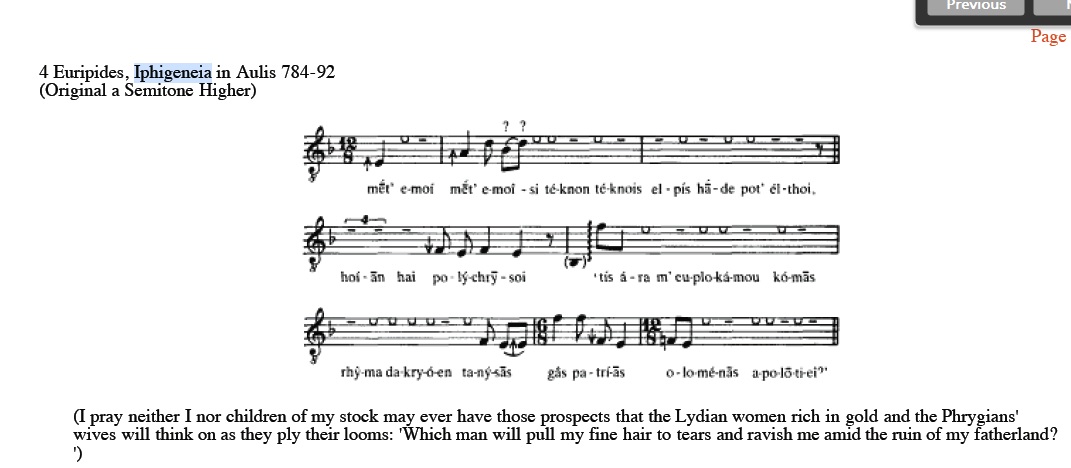It seemed necessary-- being music for drama-- that the text be available (for reference, it is the William Arrowsmith translation). But yeah, there is some unclarity in exactly how to read the music due to a dearth of example or guidebooks or whatehaveyou. I even found one performance of the Orestes piece that is strikingly different than any posted so far-- I only didn't link it because I just kind of don't like it. Haha. But yeah. I have kind of shitty tone-sense, so I didn't pick up that other performances were evidently not employing the quarter-tones. I figured it was just some weird shit with how modes might work, mostly. Haha.
I had to look up the Ipheigeneia In Aulis fragment you mentioned, because I couldn't remember if it was because it wasn't consecutive lines or what-- but it turns out why it doesn't have any recordings is that, because it's not in a strongly strophic section, where it would be known to have repetitive phrases, it can't really be reconstructed from having the start of one line and the end of another, and such. Here it is from the ML West book of ancient Greek music fragments:

There are a few other interesting fragments from otherwise unknown plays, such as a fairly extended monologue (with some gaps) from a satyr play (which I think is actually in the game as some flute bullshit that Argos plays with a drum), and a few stray lines of Tecmessa from a non-Sophocles Ajax play. The latter has some recordings, but I believe the former does not. The first one I'm linking because it has the sheet music, but I am not terribly fond of the super breathy performance-- the second one holds its own better and is more believable as what you would hear as a dramatic performance (though maybe, Ms Soprano, some clearer/crisper consonants would be appreciated...):
"
There are some gaps, but the translation given by West is: "With suicidal hand and . . . your sword, Ajax son of Telamon . . . because of Odysseus, the villain . . . wounds, he whom we miss..."
Speaking of Ariadne and opera, there is another work that treats the exact same subject as that Henry Lawes composition you linked-- there is the famous Monteverdi aria "Lasciatemi Morire", Arianna/Ariadne's lament on Naxos-- early opera/florentine camerata works being inspired by ancient Greek music-dramas in the first place:
(translation available if you scroll down here: https://www.girolamo.de/single/g11005E.html )

